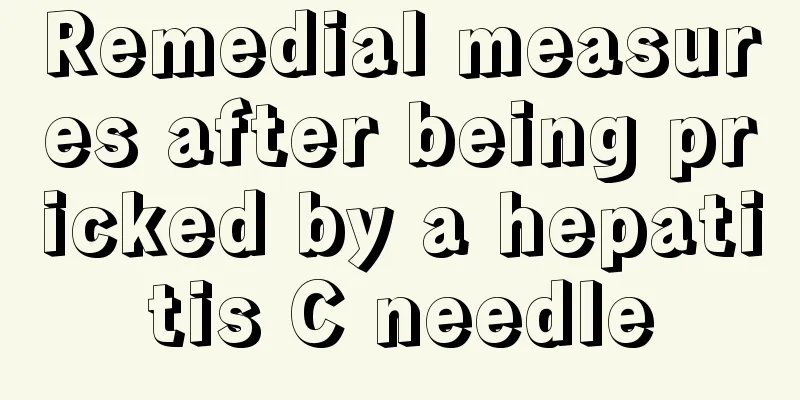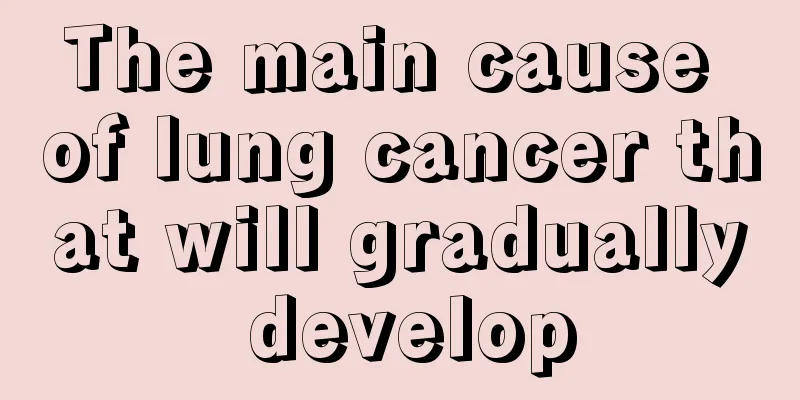Remedial measures after being pricked by a hepatitis C needle

|
Hepatitis C is transmitted in almost the same way as AIDS, but it is a curable disease. The method for detecting hepatitis C is generally to detect hepatitis C antibodies and check the viral genes. After being infected with this virus, the virus is positive in the intermediate stage before its antibodies are detected, and the virus that comes out after the test is actually the opposite. The remedial measures after HCV diagnosis will also be introduced below. 1. Transmission routes of hepatitis C Hepatitis C virus is mainly transmitted through blood. Due to the existence of an anti-HCV window period (the period from viral infection to the detection of antibodies), the unstable quality of anti-HCV detection reagents, and the fact that a small number of infected people do not produce anti-HCV, it is still impossible to completely screen out HCV-positive people. Therefore, large-scale blood transfusions and blood products may still be infected with hepatitis C. 2. Hepatitis C Remedial Measures Generally speaking, if the needle has been injected into a hepatitis C patient and then stabs another friend, this friend is at a certain risk of infection. It is hard to say how high the probability is. The risk will be greater if the patient has a large amount of virus and the wound is deep. Otherwise, the risk will be smaller. Because there is currently no vaccine or protective antibody available for hepatitis C, the wound should be flushed and disinfected as soon as possible after the puncture, and the hepatitis C antibody and hepatitis C virus quantity should be tested after 1-2 months, and then consult a professional. Recommendation to all friends: After being pricked by a hepatitis C patient, you should be tested for hepatitis C antibodies once, tested for hepatitis C antibodies and HCV RNA one month later, and tested for hepatitis C antibodies three months later. Hepatitis C is generally not transmitted through daily contact. It is mainly transmitted through unclean injections and blood, blood products, mother-to-child, and sexual contact. Even if you get hepatitis C, it can be cured, so don't worry too much. A reminder to all friends: Although 80% of hepatitis C patients have no symptoms, the virus can still be detected in the blood. Since my country did not conduct hepatitis C testing on blood sources 20 years ago, high-risk groups such as those who have a history of blood transfusion or use of other blood products 20 years ago, tattoos, organ transplant recipients, hemodialysis patients, drug addicts, and those who have unclean injections, should take the initiative to undergo hepatitis C screening. Once diagnosed, they should receive standardized treatment to avoid missing the best time for treatment. |
<<: Long-term dull pain in the liver area
Recommend
Brain cancer patients should pay attention to their diagnosis methods in a timely manner
The appearance of brain cancer will have a certai...
What are the differences between big bitter gourd and small bitter gourd
Big Kuding and small Kuding are both common varie...
Common symptoms of gallbladder cancer
Gallbladder cancer is a relatively common maligna...
What to do if peppers irritate your nose
Chili is a very important condiment in our daily ...
Ask about tongue cancer diagnostic tools
Relevant oral experts said that tongue cancer is ...
The effect of vitamin E plus pearl powder
Every woman wants her skin to look fair, tender a...
Differential diagnosis between breast cancer and 4 common diseases
In clinical practice, breast diseases such as bre...
Prostate cancer recurrence indicators
Prostate cancer recurrence indicators? For variou...
What time is the best time to go to bed at noon
If the human body spends half of its time resting...
Can I wash and massage my feet when I have a cold?
As the seasons change, more and more people will ...
How to increase appetite in patients with gastric cancer
Gastric cancer patients often experience digestiv...
Reasons why women don't want to get married
There are many reasons why women don't want t...
Uses of egg powder
Everyone is familiar with eggs. Eggs are a relati...
Is it good to wash your hair with beer and ginger?
Washing your hair is something that you must do i...
The efficacy and function of garlic tablets
Allicin is a nutrient extracted from garlic. It p...









